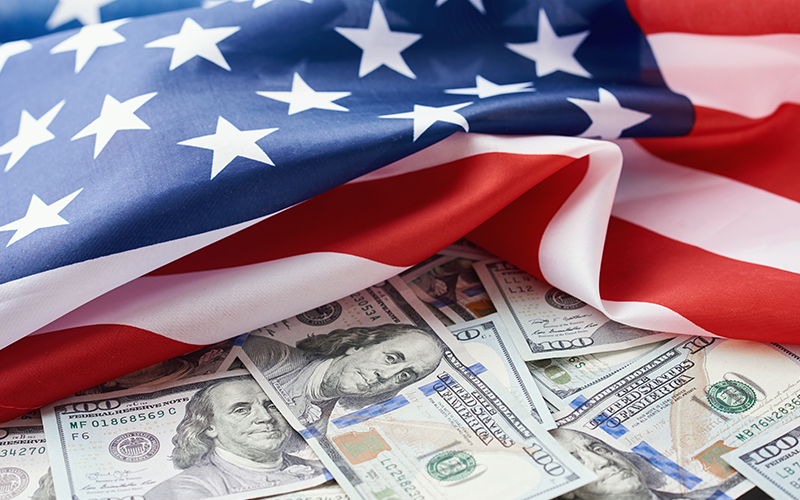Public-sector unions are the largest taxpayer-funded lobby in America, but few fully comprehend the depth of their influence over elected officials and public policy at every level of government.
Collectively, labor unions throughout the country spent more than $778 million on political activities and gifts to political organizations in 2021 alone, and it wasn’t even an election year.
Current reporting requirements make it impossible to determine precisely which of those dollars originated in the private sector rather than the public, but we know that roughly half of all the union members in America work in government, with the other half employed in private industry.
Given the size of the government and the reality that the percentage of public employees belonging to unions dwarfs the rate in the private sector, one can logically conclude that at least half of those dollars were confiscated from taxpayer-funded salaries and funneled to Big Labor to fund a radical political agenda that has nothing to do with workplace matters.
Many states ban using union dues for political action committee (PAC) contributions and require that any donations to political organizations be voluntary to prevent forcing union members to support political causes they don’t agree with.
Unfortunately, not all states have such requirements, and once the money is laundered by the unions’ national headquarters, it can be spent as union bosses see fit.
The waters are muddied still further when causes like Defund the Police are not considered PACs. Consequently, a union is well within its legal rights to allocate its members’ money to these types of causes, either directly or in the form of a gift to another organization.
And public-sector union lobbying is something Texas State Sen. Mayes Middleton (R-Galveston) hopes to address this legislative session with Senate Bill 175.
Labor unions are a multi-billion-dollar industry that serves as the funding arm of the radical left. But why is that a problem? Don’t all industries and companies within those industries spend large sums on lobbying?
Of course they do. But there are some major differences in the way corporations lobby compared with labor unions.
The first major difference is the scope of this activity.
As previously noted, labor unions contributed well over three-quarters of a billion dollars to the political arena in 2021, eclipsing the highest lobbying budget listed on opensecrets.org, which was the pharmaceutical industry at $361 million.
The second major difference is the types of issues they support. Corporations do give money to activist groups, but the majority of their interests lie within the scope of their business endeavors.
Labor unions, on the other hand, serve as an amplifier for whoever wants to up the ante on radical initiatives. They almost exclusively support one political party and don’t represent any single industry.
Rather, they have members spread across the entire spectrum, some of whom have interests at odds with another.
The closest thing they can claim as a representative industry would be the government, and therein lies the ultimate problem — labor unions are real companies but, unlike most entities in the private sector, they have an incentive to grow the government.
Labor unions are, in fact, a publicly funded monopoly that consistently works against the interests of the taxpayers forced to bankroll them.
Lastly, labor unions are still too often using their members’ money to fund ideas not all agree with. Several recent rulings by the U.S. Supreme Court have recognized that mandatory union membership and dues in the public workplace are a violation of the employee’s First Amendment rights, but lower courts have been slow to enforce union noncompliance.
In any case, the war against taxpayer-funded lobbying cannot be waged without factoring in labor unions, in particular government unions.
But like most conflicts, the first step is identifying the opponent.












